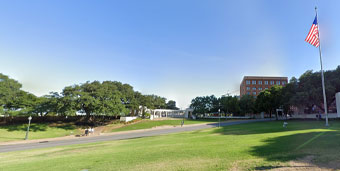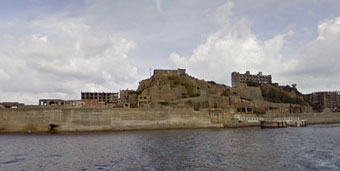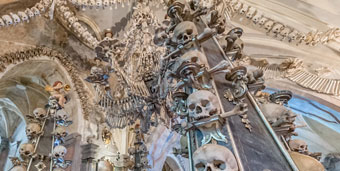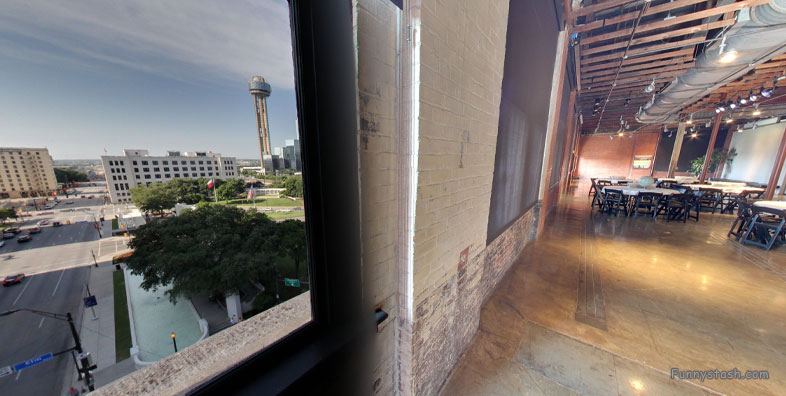Come with Funnystash to the Egyptian Temple Luxor Ramessess II in these Travel Panorama 360 Locations
Link Location Gps ← Find Best directions
A temple complex located in the city of Thebes, the ancient capital of Egypt during the time of the new kingdom. Thebes is located on the East bank of the Nile river.
[The temple was begun by the Pharaoh Amenhotep III and was completed by Tutankhamen, after completion the temple complex was continually developed by other pharaohs like Ramsses II and outside conquerors like Alexander the Great. Temples during the new kingdom were constructed as places of religious worship dedicated to certain gods of the Ancient Egyptians. The Luxor temple was dedicated to the king of the Egyptian gods Amon-Ra.
GPS Coordinate Directions / 25.700428,32.6398582
The Luxor Temple is constructed of sandstone blocks from Nubia in southwest Egypt, the temple complex is surrounded by mud brick walls symbolic of the separation between the world and the secret ground of the gods. Temple design of the new kingdom exhibited a set of common design features in temple construction, one must first pass through the Pylon to enter the temple. The Pylon is the entrance to the temple a gateway to outer courtyard of the temple complex built by Ramsses II.
Not just anyone could enter the temple complex, Only the Pharaoh, Priest and other officials are allowed. The pylon at Luxor is guarded by the statues of Ramsses II and sitting on the each side of the entrance, two stones Obelisks also mark the entrance to the luxor temple, there is only one still stands today.
An Obelisk is a tall stone monolith with a pyramid shaped top and covered by reliefs celebrating the accomplishments of the pharaoh erecting it. Egyptians enc-operated symbolism and optical illusion into the design of their temples, and the Luxor temple is know for this practice. The stone obelisks that marks the entrance to the temple were design to look the same height but were actually a different heights, an optical illusion. The outer courtyard is entered after passing through the Pylon gate, as known as the courtyard of Ramsses II, the outer courtyard is a common feature of many of the temple complexes, and some temples are contained multiple courtyards, Courtyards were decorated with statues and reliefs depicting the pharaoh and commemorating his name.
We have lots of Hi-Resoloution images from roundme.com but you may want to see these Panorama360s from googles perspective in a night time perspective, we've added Google Links on the original stash but we thought we'd give you another option to steer off onto Googles Perspective to be all inclusive to our viewers, however with that said the roundme.com Panorama360s are of very hi-Quality so we advise you to appreciate their Panorama360s also
Walking through the courtyard of Amenhotep III the next area is the Hypostyle hall the term Hypostyle hall refer to a roof that is supported by a row of columns, columns are not only support the roof but fill the whole hall, the hypostyle hall within the temple of Luxor contain four rows of eight columns each or 32 total columns
Only the Pharaoh and the Priest can enter this area of the temple. According to the Egyptian mythology columns in the hypostyle hall symbolically supporting the heavens, at one point in history, the hypostyle hall was converted into a christian chapel, excavations of Luxor temple revealed not only the history of Egypt and its Pharaohs but also provided insight the religious and methodical believes of the ancient Egyptians through the hieroglyphics reliefs and the architecture itself.
The Luxor temple has two outer courtyards connected by a column line hallway called a Colonnade. The courtyard of Amenhotep III is connected to the courtyard of Ramsses II by the colonnade. The Column is a common feature of the Egyptian temples and feature of the architectures of the temple complexes. Egyptian columns are topped by a card representation of the papyrus lotuses and other plants found along the Nile River. Columns were decorated with reliefs detailing the deeds of the kings. The temple of Luxor reveals the competitive nature of the Egyptian kings some of the names of the pharaohs were scratched out and replaced with names of others. There are examples where the name of Tutankhamen was removed and replace with the name of Horemheb, other names that indoor on the column inside the temple complex at luxor include Amenhotep III , Tutankhamen , Ramsses III , Seti I , Horemheb and Seti II
Passing through the Hypostyle hall you would reach the final area within the temple complex called The inner Sanctuary, the highest point within the temple complex and represents the home of the god. The symbolism of the inner sanctuary relates to the Egyptian creation myth and represents the primeval mound as it emerges from the water to become the earth. The creator god lived in a hut on top of the primeval mound, here the Egyptian design of optical illusions again comes into play. As you move through the temple complex the floor gradually slopes upward reaching the highest point at the inner sanctuary at the same time the ceiling is gradually sloping downward, Only the Pharaoh and the high priest could enter the inner sanctuary. The Luxor temple complex was converted into shrines of other religions by Egypt`s conquers, at the first side of the courtyard of Amenhotep III before entering the inner sanctuary is a room converted into a chapel by the Alexander the great. The walls within the chapel depict Alexander as an Egyptian Pharaoh
Aerial View of the Egyptian Temple from above in these VR Map Locations































